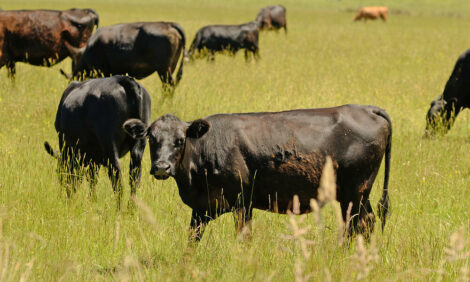



A hotter planet means a hungrier planet - UN climate report
The report says heat stress will lower livestock numbers
According to a report by the UN Intergovernmental Panel on Climate Change (IPCC), the future of food is troubling. Nearly a third of the world's crop fields and livestock rangeland will be unsuitable for food production by the end of this century if climate-warming emissions aren't heavily curbed, said the report.
Simultaneous crop failures in the world's breadbaskets and livestock deaths from extreme heat are just a few of the disasters that may befall the world's food system by 2050 as the planet warms. Such scenarios would lead to higher prices and put an additional 80 million people at risk of hunger, reported Reuters.
"The future looks dark if we do not take action," said Rachel Bezner Kerr, an IPCC lead author and global development researcher at Cornell University. "No region will be spared."
ON THE FARM
Scientists say the worst effects of climate change would start to be unleashed if global temperatures rise more that 1.5 degrees Celsius (2.7 Fahrenheit) above pre-industrial levels. Having already warmed 1.1C, the planet is expected to hit the 1.5C threshold within two decades.
The UN report released on Monday looked broadly at many consequences of climate change, from unliveable cities to shrinking economies. But its outlook on future food supply was especially grave.
Global food production is still increasing, but not as fast as in the past. Climate change already has curbed production growth by some 21% over the last six decades, the report says – at a time when demand is rising with the increasing population.
Heavy rains, high temperatures, poorer soil quality, an increase in pests such as locusts and a decrease in helpful pollinators such as bees will cause grain supplies to stumble. Yields of maize, rice, and wheat are expected to fall 10% to 25% for every degree of warming.
Farms could also see huge labour shortages by 2100, with as many as 250 more days per year becoming unworkable in some regions unless climate change is contained.
Tropical and subtropical countries would see losses of up to $22 billion annually in the dairy industry and $38 billion in beef by 2100 as heat stress thins out herds, the report said.
Hot or humid regions, including the Sahel, Amazon basin and Southeast Asia, would suffer most.
"Living in the Philippines, I have seen how tropical cyclones, flooding, and drought can lead to severe lack of nutritious food on the table," said Rodel Lasco, an IPCC author and scientist with the country's Climate Change Commission. "The most impacted are the poorest sectors of society."
IN THE SEA
Impacts aren't limited to land. Marine heatwaves, acidifying oceans, saltwater seeping into freshwater areas and harmful algal blooms are taking a toll on fish and other seafood.
Fish currently represent about 17% of global meat consumption and is projected to increase. But global fishery yields have declined 4.1% due to climate change between 1930 and 2010, the IPCC report said, with some areas, such as the North Sea and Iberian Coast, seeing losses as high as 35%.
As global temperatures continue to rise, that trend is expected to continue.
ADAPTIVE POTENTIAL
As food productivity shrinks, feeding the world will become more challenging.
When governments are alerted that crops are at risk, they typically turn to "Green Revolution techniques of using fertilizers, machinery and large monocultures to boost production," said Olivier De Schutter, a co-chair of International Panel of Experts on Sustainable Food Systems not involved with the IPCC report. "But that is clearly not the way forward."
The report highlights farming methods that coexist with nature to scale up production, such as using agroforestry — the practice of planting crops among trees — or community gardens. Shifting diets away from meat and dairy would also make a positive difference, said the report.
But containing climate change is key. "If the planet continues to warm beyond 2C," Lasco said, "trade-offs will be more painful."
Source: Reuters


